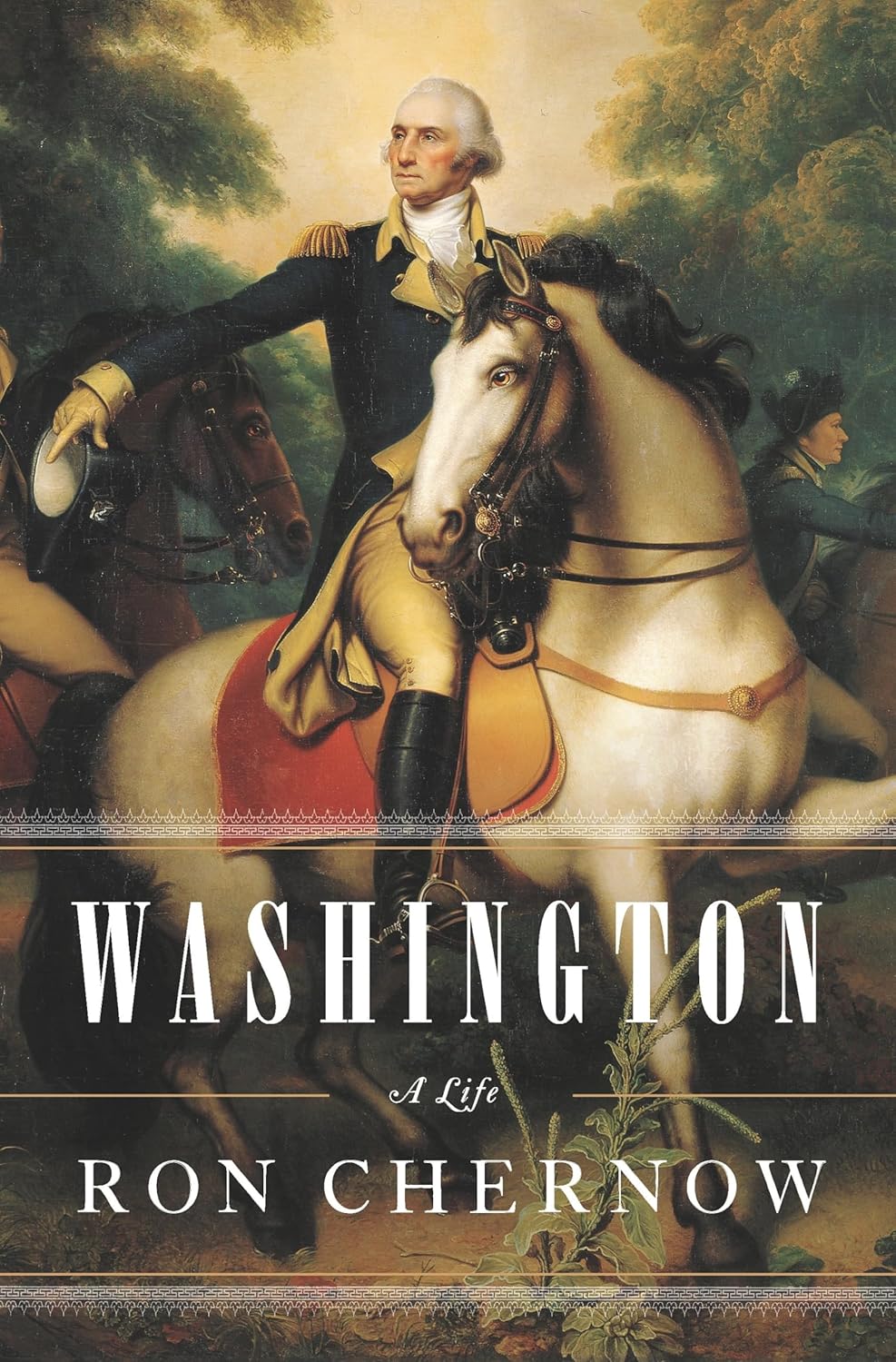Washington isn’t like Adams, effusively cantankerous; he’s not like Jefferson, a cabinet of contradictions. He’s not funny like Franklin or capacious like Madison. If critics said that his inner life glowed but faintly, Chernow, who calls him “the most interior of the founders,” thinks his inner life was red hot, burning with pent-up passion. Washington wasn’t a tortured man, though, nor was he enigmatic. He was a staged man, shrewd, purposeful, and effective. Not surprisingly for an eighteenth-century military man, he held himself at a considerable remove from his men. But he also held himself at this remove from just about everyone else.
He played a role, surpassingly well. He dressed for the part (he was obsessed with his clothes), and studied for it (as a boy, he copied out a set of sixteenth-century Italian “Rules of Civility,” which read like stage directions: “Bedew no mans face with your Spittle by approaching too near to him when you Speak”). Washington’s theatrical reserve can look, now, like mysteriousness. But what he was going for was an imperturbability that had to do with eighteenth-century notions of honor, gentility, and manliness; its closest surviving kin, today, is what’s called military bearing. Chernow’s aim is to make of Washington something other than a “lifeless waxwork,” an “impossibly stiff and wooden figure, composed of too much marble to be quite human.” That has been the aim of every Washington biographer, and none of them have achieved it. Sparks, so far from doing it, only made things worse. “Setting Washington on stilts” is what Sparks was charged with, although, really, Washington was already up there, leaning on legs of wood.
Washington retired from public life just when biography was becoming a popular middlebrow genre. Lives have been written since before Plutarch, but the word “biography” wasn’t coined until the seventeenth century, and the modern genre began to take shape only with the publication, in 1791, of Boswell’s “Life of Johnson.” The United States was new; the Presidency was new; biography was new. How Washington’s life was written would set a precedent. What would biography be, in a republic?
In June of 1799, Mason Weems, an itinerant preacher and bookseller, wrote to the Philadelphia printer Matthew Carey to tell him that he had begun writing a life of Washington: “ ’Tis artfully drawn up, enliven’d with anecdotes, and in my humble opinion, marvelously fitted”; it “will sell like flax seed.” That December, Washington died, quite suddenly. The nation mourned, but the timing, so far as Weems was concerned, could hardly have been better. “Washington, you know is gone!” Weems wrote Carey. “Millions are gaping to read something about him. I am very nearly prim’d and cock’d for ’em.” Weems’s chatty and exuberant “Life and Memorable Actions of George Washington” was first published in 1800. It sold like flaxseed.
